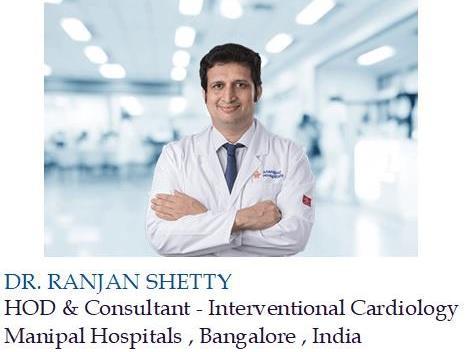An Interventional Cardiologist of the Manipal Hospitals, Bangalore, India, Dr. Ranjan Shetty, is advising journalists to have at least seven-hours of good and quality sleep, to rejuvenate their system for the next day’s work.
The sleep, he said, was necessary considering the pressure on them at work to complete or produce reports on given subject areas each day.
He said too much pressure on them could lead to a number of health challenges such as heart attack, stroke, hypertension, diabetes, and other acute and chronic diseases.
“Stress is the reason that we are losing our lives and having less quality lives. Sleep hygiene is important to manage stress. Sleep hygiene means you are sleeping at a particular time and getting up at a particular time. Sleep is important to rejuvenate you for the next day, make sure your blood pressure doesn’t go up and that your metabolic parameters between your sugar and cholesterol remain fine.
“…Just make sure you are sleeping well, you are eating two hours before you sleep, and one hour to bed, if possible, make sure you do not look into electronic media – cell phone or messages because all the wild noise impairs your quality of sleep,” he advised.
Dr Ranjan gave the advice at a virtual Cardiovascular Workshop organized by the Ghana Journalists Association in collaboration with the Manipal Hospitals, on the topic: “How Work Stress Can Make Way for Cardiovascular Diseases?” to 18 journalists on the need to reduce stress in their line or duty.
The session took participants through how long-term stress could increase blood cholesterol, blood sugar & blood pressure, which gave rise to heart ailments.
Signs of stress include; irritability, not joyful with one’s work or usual activities, not finding pleasure in work, insomnia, and fatigue, he said.
To manage stress, Dr. Ranjan asked journalists to associate with work environments that they were comfortable with and take regular breaks from work.
“One important thing to do is to break monotony, take some break, take time to travel, do something pleasurable whether walking around or listening to music. Once you do these, the work efficiency is also enhanced.
“Regular and moderate exercise is also helpful to the cardiovascular system. For beginners, you can start with 10 minutes exercise three times a week, and gradually increase to 20 and then 30 minutes depending on your capacity. But bear in mind that too much exercise can be harmful to you especially when you are ageing,” he cautioned.
The Cardiologist said spirituality also helped to release, as it psyched the minds of individuals to believe there were powers that provided them guidance.
He advised them to control the risk factors of cardiovascular diseases such as smoking, and seek medical attention to control diabetes, hypertension, and heart attack, adding that chronic stress led to chronic diseases.
Dr. Ranjan directed individuals who experienced heart pains to immediately report to a healthy facility for attention, saying: “Heart attack is like an ‘earth quake’, it gives no signs before attacking you, so always go for checkup and don’t stress yourself much because one third of people with heart attack do not reach the hospital. So do no neglect any symptom that suggests you could have a heart attack”.
He also advised the public to eat healthily and minimize their intake of carbohydrates.
Vice President of the Ghana Journalists Association, Linda Asante-Agyei, the said most of the time, journalists sought the interest of national leaders, their audience and the entire public, and failed to think about themselves or their welfare.
She entreated them to prioritize their health in their line of duty as they needed good health to achieve success in their profession.
GNA


